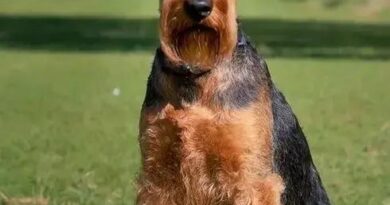What is bichon frise tips
What is Bichon Frise?
The Bichon Frise is a small breed of dog known for its cheerful disposition and fluffy white coat. Originating from the Mediterranean region, this breed has become a popular companion dog due to its playful nature and affectionate temperament. Bichon Frises are often described as lively, friendly, and adaptable, making them excellent family pets. Their small size and charming personality make them suitable for various living situations, including apartments and homes with yards.
Characteristics of Bichon Frise
Bichon Frises typically weigh between 10 to 20 pounds and stand about 9 to 11 inches tall at the shoulder. Their most distinctive feature is their soft, curly coat, which requires regular grooming to prevent matting. The breed has a rounded head, dark eyes, and a cheerful expression that endears them to many dog lovers. Bichon Frises are known for their playful and affectionate nature, often forming strong bonds with their families. They are also known for their intelligence, making them relatively easy to train.
Grooming Tips for Bichon Frise
Regular grooming is essential for maintaining the Bichon Frise’s beautiful coat. It is recommended to brush their fur at least two to three times a week to prevent tangles and mats. Additionally, professional grooming every four to six weeks can help keep their coat in top condition. Bathing should be done as needed, using a gentle dog shampoo to maintain the coat’s softness. Regular ear cleaning and nail trimming are also important aspects of grooming to ensure the overall health of your Bichon Frise.
Health Considerations for Bichon Frise
Like all dog breeds, Bichon Frises are prone to certain health issues. Common concerns include allergies, dental problems, and patellar luxation. Regular veterinary check-ups are crucial for early detection and management of these conditions. Maintaining a healthy diet and regular exercise can also contribute to the overall well-being of your Bichon Frise. It’s important to be aware of any changes in behavior or health and consult a veterinarian if any concerns arise.
Training Your Bichon Frise
Training a Bichon Frise can be a rewarding experience due to their intelligence and eagerness to please. Positive reinforcement methods, such as treats and praise, work best for this breed. Start with basic commands like sit, stay, and come, gradually introducing more complex tricks as they master the basics. Socialization is also crucial; exposing your Bichon Frise to various environments, people, and other animals will help them develop into well-rounded dogs.
Exercise Needs of Bichon Frise
Despite their small size, Bichon Frises require regular exercise to stay healthy and happy. Daily walks, playtime in the yard, or interactive games indoors can help meet their exercise needs. Engaging in activities that stimulate their minds, such as puzzle toys or obedience training, can also be beneficial. A well-exercised Bichon Frise is less likely to develop behavioral issues related to boredom or excess energy.
Feeding Your Bichon Frise
Choosing the right diet for your Bichon Frise is essential for their health and longevity. High-quality dog food that meets their nutritional needs is recommended. Pay attention to portion sizes to prevent obesity, as Bichon Frises can be prone to weight gain. Consult with your veterinarian to determine the best diet plan based on your dog’s age, weight, and activity level. Fresh water should always be available to keep them hydrated.
Socialization for Bichon Frise
Socialization is a key aspect of raising a well-adjusted Bichon Frise. Early exposure to different people, pets, and environments can help prevent fearfulness and anxiety later in life. Puppy classes and playdates with other dogs can provide valuable social experiences. It’s important to create positive associations during these interactions to build your Bichon Frise’s confidence and ensure they grow up to be friendly and sociable adults.
Common Behavioral Traits of Bichon Frise
Bichon Frises are known for their playful and affectionate nature. They thrive on human interaction and often seek attention from their owners. This breed can be prone to separation anxiety if left alone for extended periods, so it’s essential to provide them with companionship and mental stimulation. They are also known to be vocal, often barking to communicate their needs or alert their owners to potential intruders. Training and socialization can help manage excessive barking.
Choosing a Bichon Frise
When considering adding a Bichon Frise to your family, it’s important to choose a reputable breeder or consider adopting from a rescue organization. Ensure that the breeder conducts health screenings and provides a nurturing environment for their puppies. If adopting, inquire about the dog’s history and any behavioral traits. Regardless of where you get your Bichon Frise, be prepared for a loving and loyal companion that will bring joy to your life.



